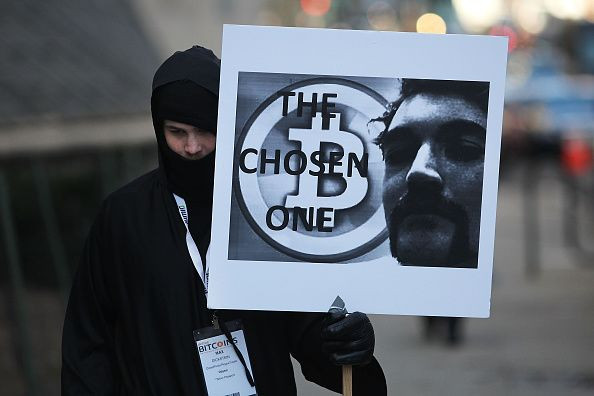Silk Road Trial: Prosecutors Paint Ross Ulbricht As 21st Century Pablo Escobar

NEW YORK -- The trial of Ross Ulbricht, co-founder of the online drug bazaar Silk Road, began Tuesday with prosecutors painting a portrait of the gangly Texas native dressed in a blue blazer and white pants as a 21st Centure equivalent of Pablo Escobar. Only instead of ravaging rural South America, he led a double life that consisted of connecting drug dealers with customers from all over the world, effectively created the criminal equivalent of Amazon or eBay, they claimed.
“We’re here to pull the curtain back on this dark and secret empire,” said prosecutor Tim Howard, explaining that Silk Road users hid and communicated on the Tor anonymity network. “He controlled his empire from behind a laptop computer.”
Ulbrich pleaded not guilty to charges that he was the mastermind of the notorious online drug market on the first day of the much-anticipated trial at Federal Court in Manhattan.
Ulbricht, now 30, was arrested in a San Francisco public library while at his personal computer, which authorities allege he used to control every aspect of the Silk Road marketplace under the identity “Dread Pirate Roberts.” The site has since been replicated by others on the Dark Net, but reigned supreme from February 2011 and October 2013 and ultimately transacted $1.2 billion in sales. As the operator, prosecutors alleged, Ulbricht took from each sale a commission of 10-percent to 12-percent, quickly building up a personal fortune of $18 million.
He was also “willing to use threats and violence to protect his turf,” Howard said.
The only problem, according to defense attorney Joshua Dratel, is that only some of that is true. Dratel admitted in his opening statement Tuesday that Ulbricht created the Silk Road as a “free-wheeling, free market site that could sell almost anything,” but the demand became so intense that Ulbricht had to walk away after being overwhelmed by stress. Ulbricht was only arrested in the San Francisco library after being “lured back in” by his former subordinates, who were tipped off that the Silk Road would soon be shut down.
“He was the perfect fall guy,” Dratel said of his client. “He was left holding the bag when the real operators knew their real time was up.”
Ulbricht took notes throughout the first day of trial, taking breaks to confer with defense attorneys and wave to his supporters, including mother Lyn Ulbricht, who were seated at the back of the courtroom. He said only “That’d be fine” in response to a question from Judge Katherine Forrest wondering whether he’d be willing to waive his right to be present at a moment when attorneys gathered to discuss an issue.
The case is expected to set precedent not only for cybercrime prosecutions, but also how law enforcement investigates online drug sales. Ulbricht, if found guilty, could spend the rest of his life in prison.
“It shows the government is going to treat these marketplaces on equal footing with the drug cartels we’re more used to dealing with,” Hanni Fakhoury, a staff attorney at the Electronic Frontier Foundation, told IBTimes. “It shows the government is serious, and it sends a message to potential Silk Road imitators.”
But it also raises questions about how much responsibility website owners might have to take to self-police their own service. Fakhoury said, logically, prosecuting the Silk Road isn’t totally different for investigating an apartment landlord if a single tenant is breaking the law.
“There’s no question the Silk Road was marketing itself as a place to buy illegal drugs,” he said. “That is a much more tricky case because what does it mean for government enforcement? You’re accountable for what happens on your site. You could be considered a co-conspirator, and if you think about it that’s a dramatic approach.”
The government’s first witness took the stand late Tuesday afternoon. Jared Der-Yeghiayan, a special agent with the investigative branch of the Department of Homeland Security, testified that he began an investigation into the Silk Road in 2011 after experiencing an influx of MDMA and other drugs being shipped through Chicago O’Hare Airport, where Der-Yeghiayan works as a narcotics investigator.
© Copyright IBTimes 2024. All rights reserved.





















